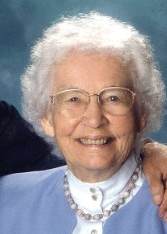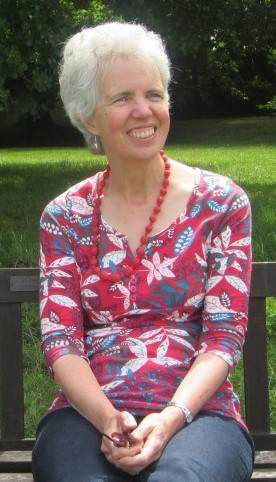Eleanor Forde Newton had the rare distinction of living in three centuries – born in 1899, she died, aged 104, in 2003. She was one of the first women to work full time with what was to become the Oxford Group (later Moral Re-Armament and Initiatives of Change).
By the time I first met her, she was in her 80s, living in Florida where she and her husband, Jim Newton treated my family to a holiday in a condominium they owned. I remember her as a small, gracious woman, with bright eyes, a sharp mind and a generous spirit.
Jim was a great raconteur, and had been a personal friend of Thomas Edison (lightbulbs), Henry Ford (cars), Harvey Firestone (tyres) and Charles Lindbergh, the first pilot to fly non-stop from New York to Paris. Ellie sometimes found it difficult to get a word in edgeways, but was a formidable woman in her own right, who had decided at the age of 50 not to get old.
So when I was wondering what FANW rabbit hole to venture down in pursuit of this blog, I put her name in the search box.
Ellie grew up in Montreal, Canada, and in her memoir remembers deliberating, aged nine, on whether to become a circus artist or a missionary. She had a happy childhood, but in her late teens, during World War I, her father’s business collapsed. By 1918 the family was in such financial difficulties that they had to split up. Ellie’s father went to live with his son by his first marriage and died two years later. Her mother took Ellie and her brother to live with her family in New York.
It was there in a Baptist Church that Ellie made the decision which she called the ‘touchstone of her life’. She embarked on a search for what God wanted her to do. This led her to a group of young people who ‘were committed to living by absolute moral standards – honesty, purity, unselfishness and love – and to actively seeking God’s guidance for their lives daily’. They were known as the First Century Christian Fellowship (the first of many names by which IofC has been known). Through them she met Frank Buchman.
Ellie became a trusted colleague of Buchman and had a remarkably straightforward relationship with him. ‘I remember him telling me I must always tell him when I thought he was wrong,’ she writes. ‘I always did. And he was equally frank with me.’ In his biography of Frank Buchman, my father quotes Buchman writing to Ellie in 1925; ‘I certainly want you to hold me to God’s best and I haven’t forgotten that you want a full hour to tell me where I have fallen short.’
At that time, much of Buchman’s outreach was through ‘house parties’, which brought people together in a friendly, relaxed atmosphere to make decisions for their lives. Ellie was involved in organising many of these events, both in the US and the UK. In 1929, she was one of 29 people who travelled to South Africa with Buchman, holding five house parties in different areas. ‘Queues of people would come up to us after the meetings and ask for a talk,’ Ellie wrote. The next day they would return for a 20-minute one-to-one session. Many made a new start in their lives.
Whether in the US, Europe or Africa, Ellie wrote to her mother (who died in 1948) and sister nearly every day. Six thousand letters to them and others are now archived at Yale University as part of the James D and Eleanor F Newton papers.
Jim and Ellie married in 1943. After the war, during which he served in the South Pacific, they helped to develop MRA’s conference centre on Mackinac Island, Michigan. MRA had been holding conferences on the island since 1942, but in 1954 bought land to build a conference centre which operated until 1971. In an interview in 1993, Jim (mostly) and Ellie regaled Phil Porter of Mackinac States Historic Parks with tales of building works during winters when the island was icebound and it was so cold that the bricks, mortar and nails had to be heated.
The Newtons travelled widely with MRA until 1967, when, in Ellie’s words, they ‘woke up’ to their advancing years and settled in Florida. Instead of retiring, they set up a property business, which flourished. Ellie got her real estate license at the age of 71.
Jim and Ellie were incredibly generous, both to the movement and to individuals within it. The final treasure I discovered on the FANW site was a recording from an industrial conference in Caux in 1987, in which Ellie tells about ‘a joke God played on me’ many years earlier: ‘I received a letter saying that a very dear uncle of mine had left me a legacy. So I thought, oh boy, maybe it’ll be $4,000! And when the cheque came it was $40,000. And I thought, well, that’s just 100 times more fun I’m going to have!’
Ellie’s maths may have been unreliable, but her generosity wasn’t. She gave the whole sum away.


